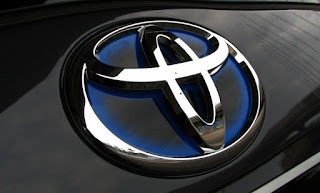Toyota: Driving Innovation for a Sustainable Future
As one of the world's leading automakers, Toyota has earned a reputation for reliability, innovation, and sustainability. From the iconic Prius to the rugged Tacoma pickup, Toyota has consistently pushed the boundaries of what's possible in automotive engineering. In this article, we'll explore some of the key factors behind Toyota's success, as well as some of the company's most exciting recent developments.
The Toyota Philosophy
At the heart of Toyota's success is the company's unique philosophy, which emphasizes continuous improvement and respect for people. This philosophy, known as the Toyota Production System (TPS), was developed in the 1940s and 1950s by Toyota's founder, Sakichi Toyoda, and his son, Kiichiro Toyoda. The TPS is based on two core principles: just-in-time (JIT) production and the concept of kaizen, or continuous improvement.
JIT production is a method of manufacturing that emphasizes minimizing waste by producing only what is needed, when it is needed. This approach reduces inventory costs, improves quality control, and increases production efficiency. Kaizen, on the other hand, is a philosophy of continuous improvement that encourages employees at all levels to identify and eliminate inefficiencies in the production process.
These two principles are supported by a number of other key concepts, including standardized work, visual management, and the use of tools like the "5S" system to keep workspaces clean and organized. Together, these concepts form the foundation of the Toyota Production System, which has been widely imitated by other automakers and manufacturers around the world.
Innovation and Sustainability
Toyota has a long history of innovation in automotive design and engineering. In 1997, the company introduced the first mass-produced hybrid vehicle, the Toyota Prius, which has since become a symbol of environmentally conscious driving. The Prius uses a combination of a gasoline engine and an electric motor to achieve high fuel efficiency and low emissions.
Since then, Toyota has continued to innovate in the field of sustainable mobility. In 2014, the company introduced the Mirai, the world's first mass-produced hydrogen fuel cell vehicle. The Mirai uses hydrogen as fuel and emits only water vapor as a byproduct. While the technology is still in its early stages, it has the potential to be a game-changer in the transition to a low-carbon economy.
In addition to its focus on sustainable mobility, Toyota has also made significant strides in reducing its environmental footprint in its manufacturing operations. In 2015, the company announced its Toyota Environmental Challenge 2050, which sets ambitious targets for reducing CO2 emissions, conserving water resources, and promoting recycling and sustainable materials. As part of this initiative, Toyota has introduced a number of innovative manufacturing processes, including using renewable energy sources like wind and solar power.
Recent Developments
Toyota's commitment to innovation and sustainability is evident in its recent product lineup. In addition to the Prius and Mirai, the company has introduced a number of other environmentally friendly vehicles, including the Camry Hybrid, RAV4 Hybrid, and Highlander Hybrid. These vehicles use advanced hybrid technology to deliver impressive fuel efficiency without sacrificing performance or comfort.
But Toyota's innovations don't stop there. In 2020, the company introduced the GR Yaris, a high-performance rally-inspired hatchback that has been praised by automotive enthusiasts for its impressive handling and agility. And in 2021, Toyota announced that it would be introducing an all-electric SUV, the Toyota bZ4X, in 2022. The bZ4X is part of the company's broader plan to introduce 15 new battery-electric vehicles by 2025.
Conclusion
Toyota's commitment to innovation, sustainability, and continuous improvement has made it a driving force in the automotive industry. From its founding principles of the Toyota Production System to its groundbreaking innovations in sustainable mobility, Toyota has consistently pushed the boundaries of what's possible in automotive engineering. With a focus on respect for people, environmental responsibility, and customer satisfaction, Toyota is well-positioned to continue leading the way towards a more sustainable and efficient future for all.
Labels: automobile, Business, Interesting, Technology


0 Comments:
Post a Comment
Subscribe to Post Comments [Atom]
<< Home